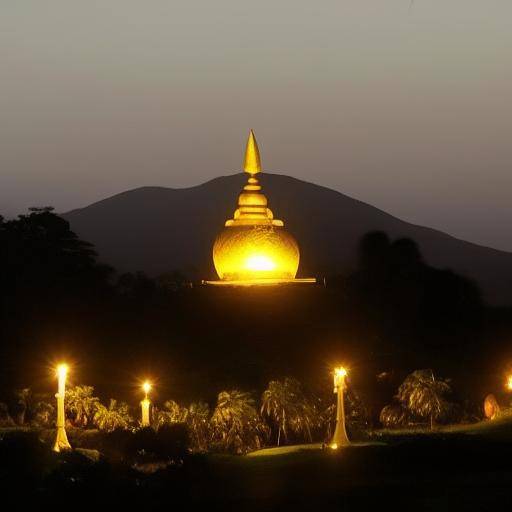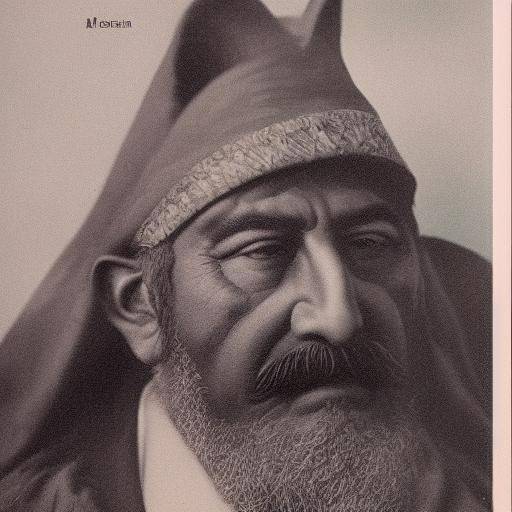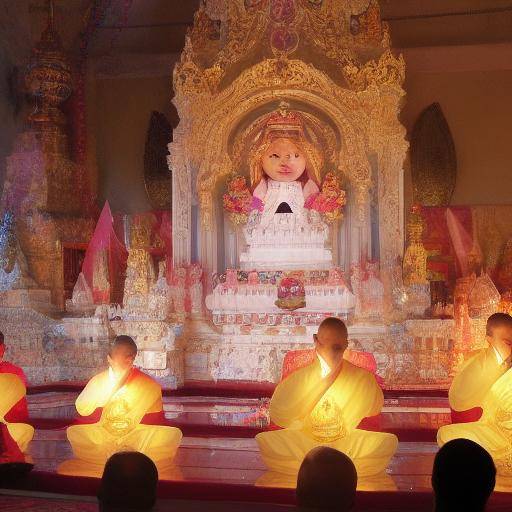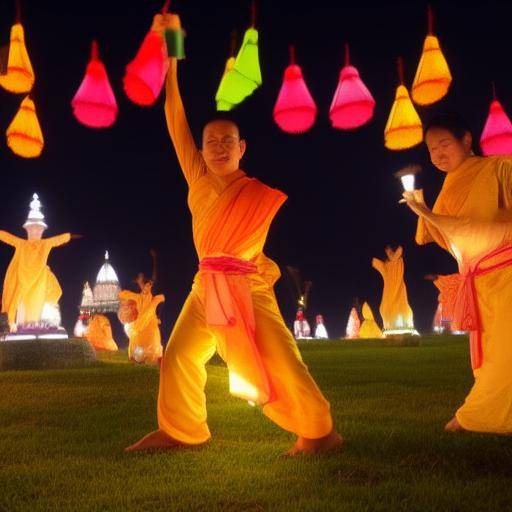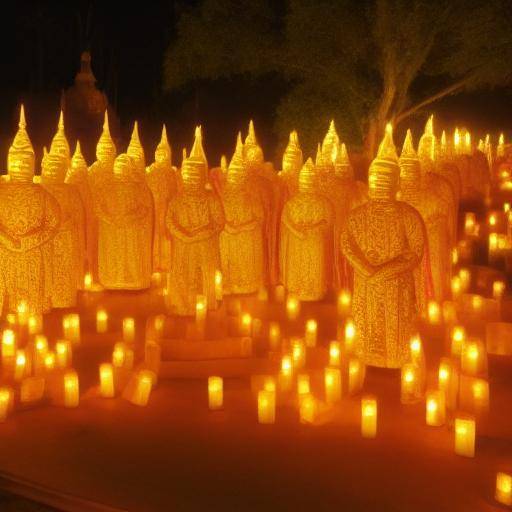
Introduction
Every year, millions of Buddhists around the world celebrate one of the most important festivities of their faith: Vesak. This celebration commemorates three significant events in Buddha's life: his birth, his enlightenment and his death. In this article, we will explore in depth the importance of Vesak, the meaning of Buddhism and the relevance of the full moon in this holiday. Join us on this journey to discover spiritual wealth, fascinating history and contemporary practices related to these ancestral celebrations.
History and Background
Vesak, also known as Wesak or Buddha Purnima, is an annual celebration that honors the three key events in the life of Siddhartha Gautama, who would later become Buddha. The date of Vesak varies according to the lunar calendar and is particularly important in countries where Buddhism is the predominant religion, such as Sri Lanka, Thailand, Myanmar, Nepal and Singapore, among others.
The festival marks the birth of Buddha in Lumbini, its illumination under the Bodhi tree in Bodhgaya, and its death (parinirvana) in Kushinagar. The veneration of these fundamental events reflects the importance of Buddha's life, teachings and spiritual legacy in Buddhist tradition.
Origins and Meaning
Vesak's origin dates back to over 2,500 years when Buddha lived and taught in the northeast of India. The festival serves as a reminder of the teachings of compassion, love and wisdom that Buddha shared with the world. Through rituals, acts of goodness, meditation and reflection, the followers of Buddhism celebrate the life and teachings of Buddha during Vesak.
Important Developments
Over the centuries, Vesak has evolved and has been celebrated in various ways in the different regions where Buddhism has been rooted. Today, Vesak's festivity has acquired a global dimension thanks to the Buddhist diaspora. Religious and cultural activities include the recitation of sutras, offerings of flowers and food to monks, as well as the lighting of votive lamps.
Practices and Celebrations
Rituals and Ceremony
During Vesak, Buddhist temples around the world are filled with devotees who participate in various ceremonies and rituals. Common activities include reciting sacred texts, group meditations and bath ceremonies of Buddha statues, symbolizing the purification of mind and spirit. Processions are also carried out in which Buddha statues are decorated with flowers and lights on the streets.
Generosity and Compassion Acts
An essential part of the celebration of Vesak is the practice of generosity, known as "dana". Buddhists believe that offering food, flowers and incense to monks and temple is a way to accumulate merit and cultivate virtue. In addition, community activities such as donations to those in need, the release of birds and fish, and the organization of events to promote peace and harmony.
The Relevance of the Full Moon
Vesak is celebrated during the lunar month of Vesakha, which corresponds to April or May on the Gregorian calendar. The festival always takes place on a full moon day, a symbol of fullness and clarity in Buddhism. The full moon of Vesak represents the perfect moment for enlightenment and spiritual renewal, aligning the natural cycles with the transcendental events of Buddha's life.
Cultural and Spiritual Impact
The Global Dimension of Vesak
With the growth of Buddhism worldwide, Vesak has become a global celebration that transcends borders and cultures. In countries with large Buddhist communities, Vesak's festivities are organized on a large scale, attracting both Buddhists and people of other religions interested in learning about Buddha's teachings.
Spiritual Significance
For Buddhists, Vesak is not only an occasion to commemorate Buddha's life, but also a time to reflect on his own spiritual practice. The festival offers an opportunity to renew the commitment to Buddhist precepts, strengthen the meditation and practice of compassion, and work towards the liberation of suffering.
Relevance in the Contemporary World
Vesak and Interreligious Dialogue
In the contemporary world, Vesak also plays an important role in interreligious dialogue. By opening the temple doors and participating in community events, Buddhists promote understanding and harmony between different religious traditions. This spirit of openness and mutual respect is essential to foster peace in an increasingly interconnected world.
Vesak and Sustainability
Some Buddhist communities have begun to integrate sustainability practices into their Vesak celebrations. This includes the use of ecological materials for decorations, the promotion of vegetarianism and the organization of activities that focus on the importance of caring for the environment. These initiatives reflect the Buddhist commitment to the protection of all living beings and nature.
Conclusion
Vesak is a celebration that encapsulates the fundamental values of Buddhism: compassion, wisdom and the pursuit of enlightenment. Through rituals, acts of generosity and reflection, Buddhists honor Buddha's life and teachings, recalling the importance of cultivating virtue and understanding in their daily lives. In a world facing many challenges, Vesak's feast offers a moment of peace, renewal and hope, inviting everyone to join in the search for a more harmonious and compassionate world.
Frequently asked questions
- **What is Vesak?**Vesak is a Buddhist festival commemorating the birth, enlightenment and death of Buddha.
- **How is Vesak celebrated?**Celebrations include rituals in temples, acts of generosity, meditation and processions.
- **Why is the full moon important in Vesak?**The full moon symbolizes fullness and clarity, marking the ideal moment for spiritual renewal.
- **What do acts of generosity mean during Vesak?**Acts of generosity, or "dana", are ways to accumulate merit and cultivate virtue.
- **How has Vesak evolved in the contemporary world?**Vesak has globalized and integrated with sustainable practices and interreligious dialogue.
This article has explored in depth the celebration of Vesak, highlighting its historical, cultural and spiritual importance. In celebrating Vesak, Buddhists and those interested in Buddhist philosophy have the opportunity to reflect on the essential values of life and contribute to a more compassionate and harmonious world.



